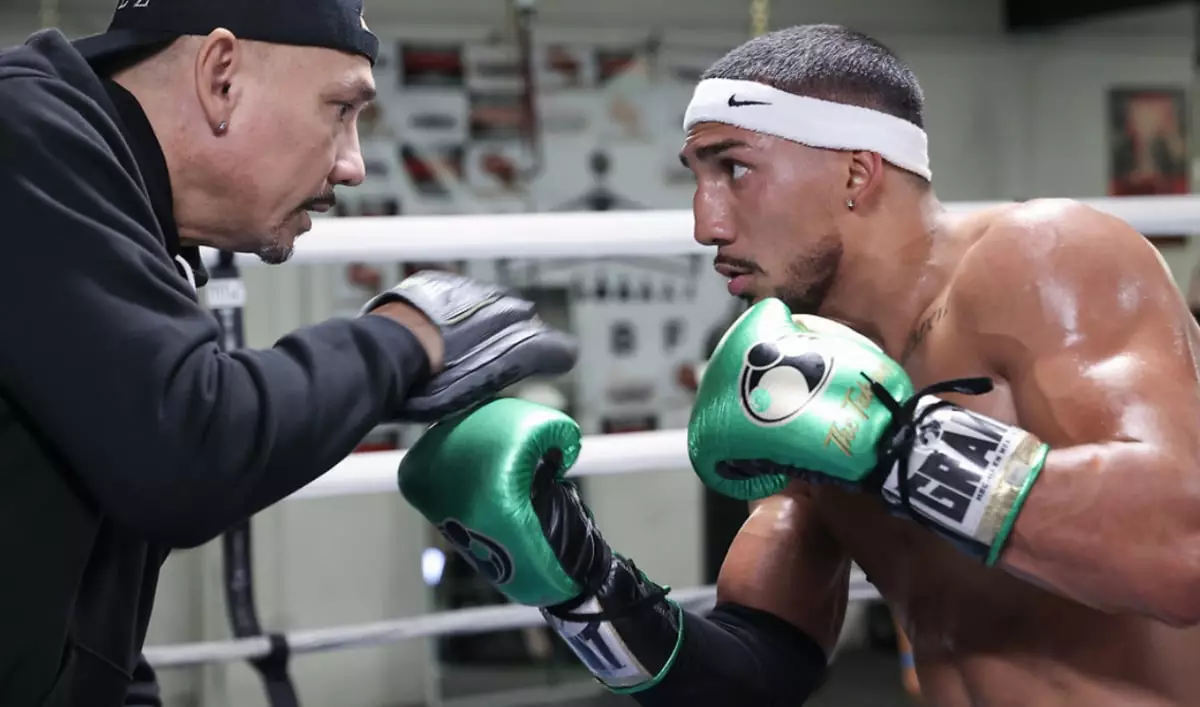Teofimo Lopez, a former lightweight champion with a reputation for his confrontational style, has found himself in a state of frustration. Recently, he took to social media, publicly chastising Jaron “Boots” Ennis for declining a potential fight. Lopez’s remarks, aimed at portraying Ennis as a coward, reveal deeper layers of disappointment—both in the boxing landscape and in his own career trajectory.
Lopez (22-1, 13 KOs) seems to be stricken by the urgency to make a mark against another highly regarded fighter, especially in an era where bouts among elite boxers have become increasingly rare. His frustration seems amplified by the feeling that Ennis and others are shunning the fight that fans desire. However, this perspective overlooks the complex realities that Ennis faces in the welterweight division.
The Dilemma of a Champion
Jaron Ennis (34-0, 30 KOs), holding titles from the IBF and WBA, is currently wedged between mandatory obligations and the dream of unification bouts. To fight Lopez, he would essentially jeopardize his scheduled defense against Shakhram Giyasov, which the WBA has mandated. It’s a precarious balancing act that speaks volumes about the organizational pressures boxing champions face. While Lopez’s articulation of his feelings might resonate with fans who crave high-stakes matchups, one can’t ignore Ennis’s meticulous strategy to achieve undisputed status before moving up in weight.
Instead of condemning Ennis for avoiding a fight, Lopez might consider the broader context of a champion’s career decisions. Ennis is not merely avoiding a confrontation; he is managing his path to greatness in a sport that often penalizes fighters for not fulfilling obligations. The spotlight is not solely on Ennis; it is shared among the multitude of fighters eager for acclaim and the belts that symbolize it.
A Fractured Image of Legacy
Lopez went so far as to label Ennis and his camp as “bozos,” a term that undermines the serious nature of professional boxing and ultimately reflects Lopez’s insecurities about his standing in the sport. In a sport defined by legacy, it seems somewhat desperate to reduce a champion’s choices to labels rather than engage in discourse about the fights that might genuinely benefit both fighters. Consideration of various matchups, like those involving Gary Antuanne Russell or George Kambosos, could provide Lopez with an opportunity to reshape his narrative while enriching the boxing landscape.
Lopez’s lamentation about the potential loss of his Ring Magazine title indicates a deeper paranoia, suggesting that his self-worth is tied to accolades rather than the artistry of boxing itself. Boxing isn’t merely about titles; it’s also about the stories athletes create within the ring. If Lopez wishes to rebuild his brand and legacy, perhaps he should adjust his focus from critics and other fighters to crafting an enticing narrative through notable performances against diverse competitors.
Shifting the Narrative
At the end of the day, Lopez’s public outcry poses an interesting question: what does it mean to be a fighter in today’s boxing climate? The drive for marquee matchups and fanfare must contend with logistical realities that often dictate fighter decisions. Lopez has a legitimate case in wanting to face elite opponents, yet the dismissive remarks towards Ennis hint at an underlying frustration that could ultimately hinder his ascent.
If Lopez genuinely aims to “claim the best” for his legacy, he may want to reconsider his strategy. Rather than chastising fellow fighters for their choices, embracing the multitude of available opponents could enrich his career while further legitimizing the sport. Boxers need to remember that the sport’s heart beats strongest when compelling stories unfold in the ring—stories that captivate fans, grow legacies, and create history.


Leave a Reply